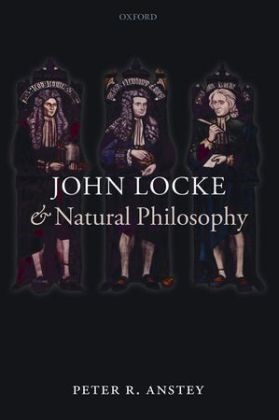Read more
Zusatztext one of the most interesting and insightful books published recently on Locke. It is a refreshing revision of many of the standard views of Lockes engagement with natural philosophy and its significance for interpreting his Essay Concerning Human Understanding. It is rich and subtle, and I strongly recommend it to everyone interested in Lockes epistemology and late seventeenth-century philosophy of science generally. Peter Anstey presents a systematic reinterpretation of Lockes philosophy of science ... Ansteys project is fascinating, and the conclusions he brings forth are exciting and quite compelling. I see his book as a game changer in the study of Lockes philosophy of science that will set the tone for future research. It is a must-read for Locke scholars and historians of the philosophy of science alike. Informationen zum Autor Peter R. Anstey studied analytic philosophy and the history of philosophy at the University of Sydney. He later took up a U2000 postdoctoral fellowship at Sydney and then a lectureship. In 2006 he moved to Dunedin in New Zealand where he is the inaugural Professor of Early Modern Philosophy in the Department of Philosophy at the University of Otago. His research focuses on early modern philosophy with special reference to the writings of John Locke and Robert Boyle. He is the author of The Philosophy of Robert Boyle, London: Routledge, 2000. Klappentext Peter Anstey presents an innovative study of John Locke's views on the method and content of natural philosophy -- the study of the natural world. He argues that Locke was an advocate of the Experimental Philosophy: the new approach to natural philosophy championed by the scientists of the Royal Society who were opposed to speculative philosophy. Zusammenfassung Peter Anstey presents an innovative study of John Locke's views on the method and content of natural philosophy -- the study of the natural world. He argues that Locke was an advocate of the Experimental Philosophy: the new approach to natural philosophy championed by the scientists of the Royal Society who were opposed to speculative philosophy. Inhaltsverzeichnis Introduction 1: Natural philosophy and the aims of the Essay 2: Corpuscular pessimism 3: Natural history 4: Hypotheses and analogy 5: Vortices, the deluge and cohesion 6: Mathematics 7: Demonstration 8: Explanation 9: Iatrochemistry 10: Generation 11: Species Conclusion List of manuscripts Bibliography Index ...

